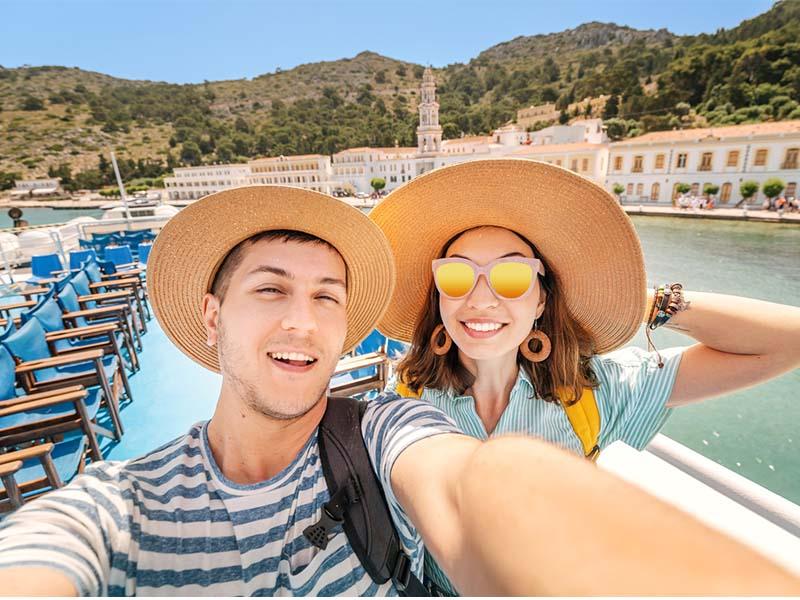No FOMO here - study finds social media photos may drive new customers away
Social media marketers sharing photos of people vacationing in exotic locales or attending events at exclusive venues may actually be driving new customers away, according to a recently published Tulane University study.
The study analyzed more than 14,000 Instagram travel photos from a top influencer and conducted a series of experiments that asked viewers to choose between venues with or without another person in the photo.
Across a diverse range of destination venues, the authors consistently found that the presence of others in the photo of a place for special or once-in-a-lifetime events lowered viewers’ liking and preference for the venue. "When it’s an experience closely tied to self-identity, like vacations or weddings, people want to feel personal ownership over the venue,” the authors explained.
The study, published in the Journal of Consumer Research, is the first to investigate the impact of human presence in shared photos through the lens of what is known as “psychological ownership,” that is, the feeling that something belongs to an individual even when they do not have legal ownership of it.
For instance, students in a classroom may feel “this is MY seat,” or fans may feel a franchise is “MY team.” Similarly, married couples may feel “this is OUR wedding venue” when it’s only a space that hosts their ceremony or reception. According to researchers, consumers often construct and communicate their identity through such ownership.
In fact, Zoe Lu, assistant professor of marketing at Tulane’s A. B. Freeman School of Business, got the idea for the study from the photo taken after her fiancé’s marriage proposal in 2018. As she shared it with friends, she had an intuition that "seeing me and my fiancé in the photo could make our friends feel this is OUR marriage proposal location and therefore less likely to choose the same location for THEIR marriage proposal."
The study suggests advertisers should be cautious about using photos of prior customers in online images of “identity-relevant experiences” and how people see special occasions as more identity-relevant than non-special experiences. For example, an anniversary dinner would be a more identity-relevant experience than a typical dinner out.
According to Lu, carefully considering whether the featured consumer experience is identity-relevant and whether the people pictured have a distinctive identity can help venues optimize their visual content marketing.
If marketers want to include people in photos promoting an experience, they should feature people who don’t compete with the viewer for the same identity, such as employees or business owners. If a venue encourages consumers to share their personal photos online, it should discourage them from posting selfies or pictures with themselves present.
While pictures with people can often feel more engaging or authentic, Lu says her study shows they can sometimes undermine marketing goals.
The study’s findings also suggest that consumers may choose how to share photos of their experiences (with or without themselves in the pictures) depending on whether they want to encourage their social networks to go to the same venue or discourage it.
Suyeon Jung and Joann Peck of the Wisconsin School of Business co-authored the study.

